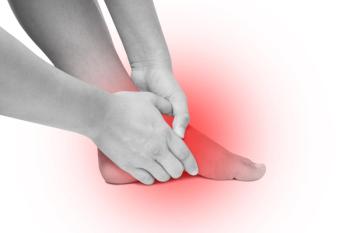
Exploring Peripheral Nerve Stimulation Therapy for Shoulder Pain Management Through Real-World Evidence
Shoulder pain can originate from various sources, such as osteoarthritis, post-operative discomfort, musculoskeletal injuries like a torn labrum, neuralgia and paralytic shoulder injury. Recent research has shown that PNS can effectively manage chronic and acute pain.
Acute and chronic shoulder pain is a common complaint affecting a significant portion of the population, with high rates of chronicity. Chronic shoulder pain affects patients' quality of life, physical function, and sleep. Factors contributing to shoulder pain vary widely, leading to various impacts on patients, including functional limitations and emotional distress. As individuals age, the reported prevalence increases while the likelihood of pain resolution decreases.
The prevalence of shoulder pain has prompted a shift toward more holistic, patient-centered approaches to treatment outcomes. One such approach, neurostimulation, specifically peripheral nerve stimulation (PNS), is emerging as a viable treatment option when conventional therapies are inadequate.
“Real-world evidence of durable multi-dimensional improvement after 60-day peripheral nerve stimulation treatment used for shoulder pain” is a retrospective real-world analysis published in
Shoulder pain can originate from various sources, such as osteoarthritis, post-operative discomfort, musculoskeletal injuries like a torn labrum, neuralgia and paralytic shoulder injury. Recent research has shown that PNS can effectively manage chronic and acute pain.
PNS is a promising approach to managing chronic and acute pain without relying on non-steroidal inflammatory medicine, opioids, topical pain-relief products and injectable steroids or anesthetics. It is an FDA-cleared non-opioid pain management system that involves placing a small lead wire (about the diameter of a human hair) near a specific peripheral nerve to stimulate shoulder nerves and reduce pain. In other words, PNS alters how your brain perceives pain.
In this study, researchers investigated the effectiveness of 60-day peripheral nerve stimulation (PNS) in improving various health aspects in patients experiencing shoulder pain. The researchers evaluated the multi-dimensional impacts of 60-day PNS treatment and focused on patient-reported outcomes in different health domains. Data from 768 patients was included in the analysis.
Criteria for inclusion included completion of treatment and availability of data across pain, quality of life, physical function and sleep domains. Patients were able to control stimulation parameters using a remote device. Outcomes were assessed using patient-reported metrics at the end of treatment and during follow-up at 3 and 6 months.
The results indicated that 80.7% of patients were responders, showing improvement in at least one health domain by the end of treatment. Among 620 responders, patients experienced clinically significant improvements in an average of more than three health domains. The effectiveness of the treatment on different aspects of their health and well-being demonstrates this therapy's broad impact.
Among patients included in follow-up analyses, 75% maintained at least one improvement over six months, with 85% responding at three months. The most common complications reported were non-serious skin irritations (5.9%).
Most patients reported significant pain relief and improvements in daily functioning, with only an insignificant percentage experiencing side effects. The findings suggest that PNS can be a valuable treatment for shoulder pain, with benefits that persist for up to six months.
The researchers acknowledge the study’s limitations, including the study’s retrospective nature, reliance on self-reported data, and potential biases in patient selection for follow-up.
The study concluded that 60-day PNS effectively provides significant, multifaceted improvements in patients suffering from shoulder pain. These findings reinforce the utility of PNS as a valuable treatment modality and advocate for incorporating comprehensive patient-reported outcome measures in future assessments.
This real-world evidence suggests that PNS could be a significant advancement in treating chronic shoulder pain, providing pain relief and enhancing overall patient well-being across multiple health dimensions.
Newsletter
Get the latest industry news, event updates, and more from Managed healthcare Executive.























